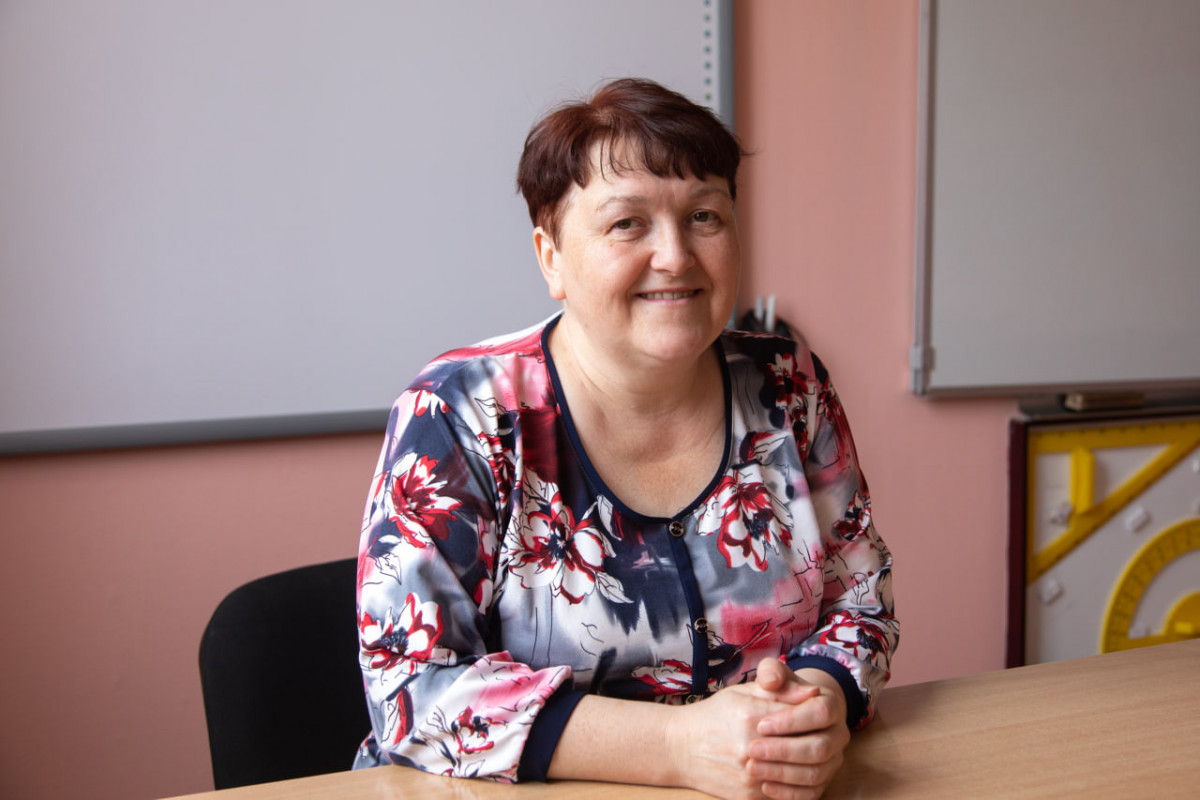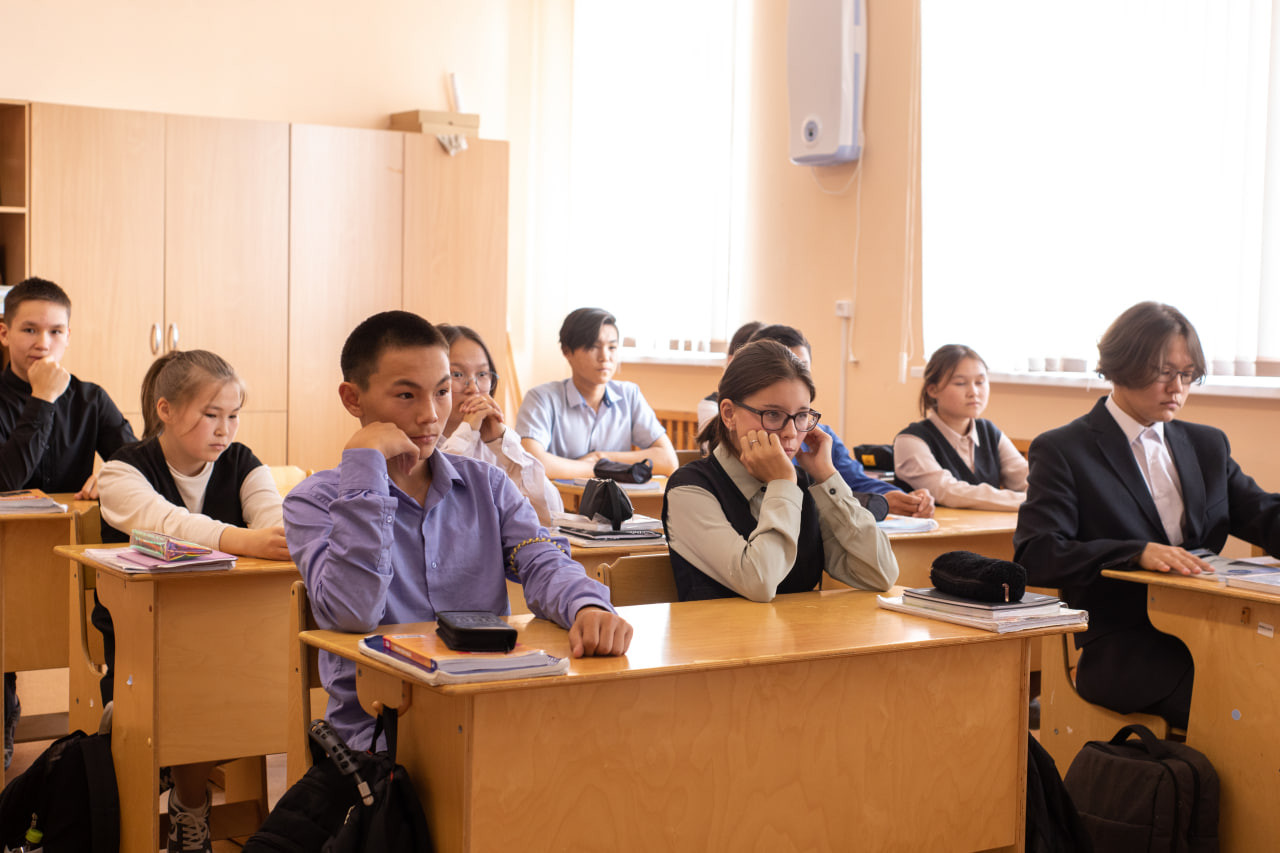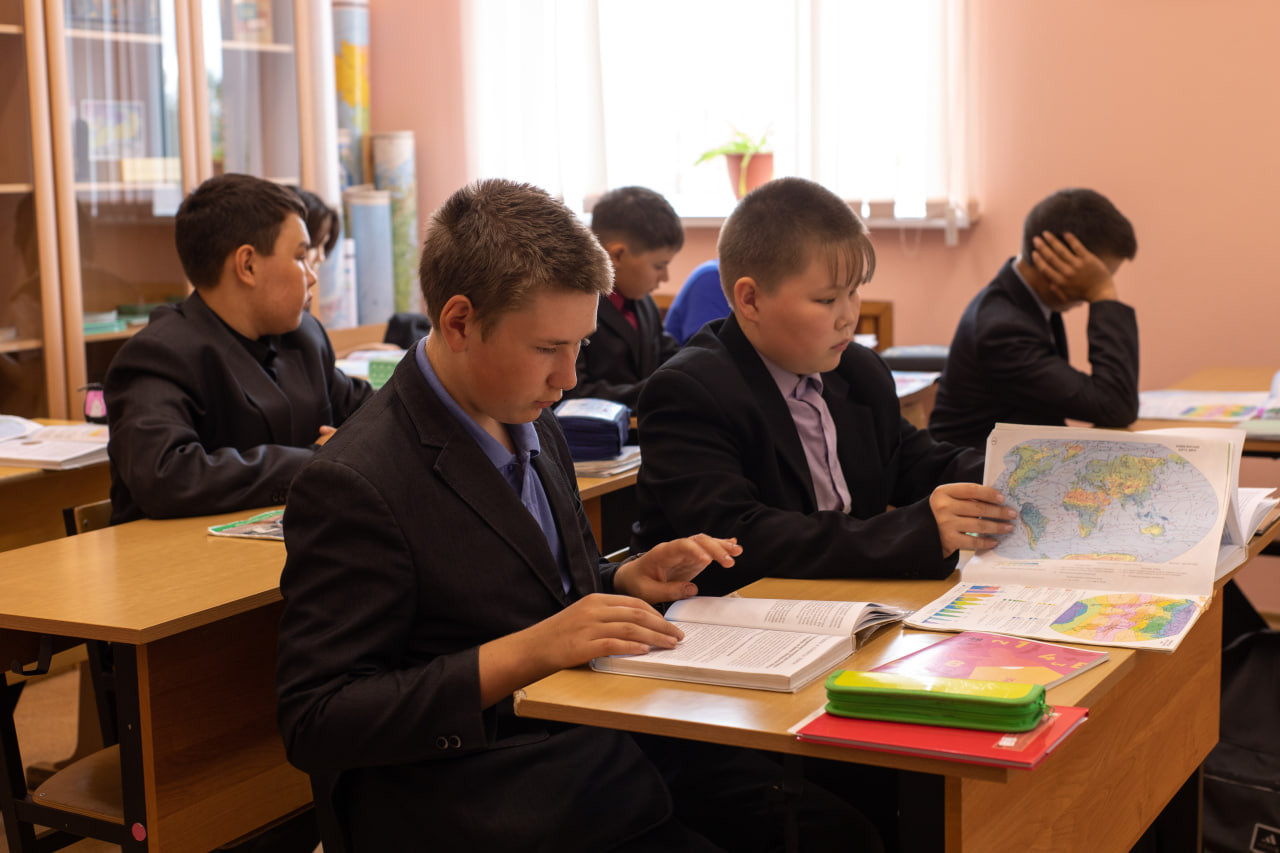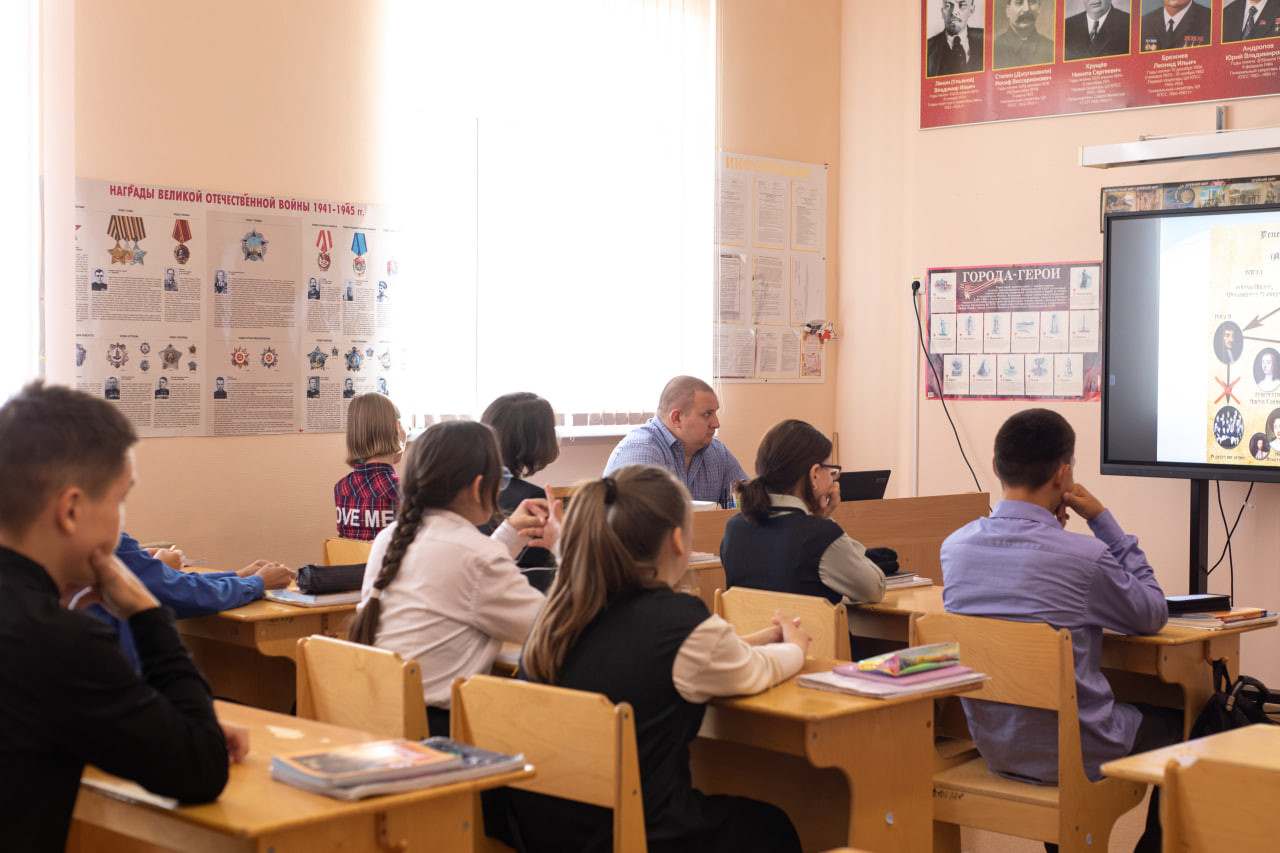In the year of the teacher and mentor, NAO24 launched #teachersNAO, where we talk about teachers in the region, their path to the profession and achievements. Today we congratulate everyone involved on their professional holiday – Teacher’s Day. Professionals from Oma told us about their work

Photo: Anna Plastova/nao24.ru
“Children always teach us something.” Teacher of Russian language and literature Tatyana Mikheeva
Tatyana Mikheeva was born in the village of Verkhnyaya Pesha and studied there until the 3rd grade. The school was understaffed, and little Tanya went to the Omsk eight-year school, and finished grades 9-10 in Nizhnyaya Pesha.
— In the 9th-10th grade, when I was studying at a boarding school, I always helped the kids with their homework. Everyone said that I explain things well. So I decided to become a teacher,” says Tatyana Leonidovna.
After school, she received secondary vocational pedagogical education in the city of Naryan-Mar, specializing as a primary school teacher. Further on the distribution I ended up in Vizhas. In addition to working in her specialty, she taught Russian in grades 5-7. I decided to study further and realized that I wanted to be a teacher of Russian language and literature. She received her higher education at NArFU in Arkhangelsk.
Now Tatyana Mikheeva’s teaching experience is more than 30 years, but the teacher always learns together with her students.
— I like communicating with children. They always teach something. Each issue is different. Even every class is different. I believe that every class has its own spirit. If a child comes to class and accepts this spirit of the class, he gets along and continues to learn. If not, she goes to another school or class,” she explains.
When asked whether it is difficult to let children leave school every year, Tatyana Mikheeva’s eyes well up with tears.
“It’s very difficult,” says the teacher. – Well, what can we do? Don’t keep them here. It’s like a train – the teacher stands on the platform, the children come, leave, and you again take the next small carriage. Each child has his own character, you look for an approach to everyone.
Conflict among students is not uncommon, but it is nothing new for an experienced teacher. Tatyana Mikheeva has a simple way to smooth out all the corners between schoolchildren – to bring all parties to the negotiating table.

Photo: Anna Plastova/nao24.ru
— I seat everyone at the round table (that’s right, round). And we begin to present accumulated claims to each other. We start talking, discussing, and come to a decision,” shares Tatyana Leonidovna. — There were times when they said that schools should not be involved in raising children, but this is not true. Parents do one kind of upbringing, we do another. The school’s job is to shape the future.
“Children are charging.” Teacher of geography, local history, native (Nenets) language and literature Yulia Bobrikova
Yulia Bobrikova born and raised in the village of Oma. After graduating from school, she received secondary vocational pedagogical education in the city of Naryan-Mar, and then higher education at the University. A. I. Herzen in St. Petersburg. Work experience in the profession is almost 20 years.
When asked what she especially likes about her profession, the teacher answers:
— The children themselves charge. The guys always give off great positive energy, which allows them not only to educate them, but also to move forward. Our school has a wonderful, friendly, close-knit team, in which everyone is ready to help each other,” shares Yulia Anatolyevna.

Photo: Anna Plastova/nao24.ru
There are a lot of difficulties in the work of a teacher, but, as Yulia Anatolyevna says, everything can be overcome.
— We do not retreat, we take on any task. Sometimes it’s difficult to juggle school and home, but we manage,” she says with a smile on her face.
Despite all the delights of city life, Yulia Anatolyevna was always drawn home to the village: Oma is too good to leave.
During the conversation, the teacher notes that one of the characteristic features of teaching the new generation is the digitalization of information, its simplicity, but at the same time large volumes.
— The new generation is different. If earlier we obtained knowledge in other ways – we went to the library, looked for information in books, collecting it bit by bit, wrote it down, analyzed it, compared it, but now everything is freely available. Of course, those guys who also collect information piece by piece and systematize it better learn the material,” says Yulia Anatolyevna.
The teacher notes that she tries to be on an equal footing with the children, while maintaining subordination. You can also learn something from children, remember yourself in your school years.

Photo: Anna Plastova/nao24.ru
With particular pride, the teacher notes her students’ love for local history.
— Children study the subject “Our Land” with pleasure and show good results at school Olympiads. I also teach my native (Nenets) language, but here I am still learning myself. My mentors help me in this difficult matter,” she concludes.
“One of the advantages of the profession is communication with people.” History and social studies teacher Evgeniy Sharin
Evgeniy Alexandrovich was born in the city of Sovetsk, Kirov region. The teacher has experience working in schools in the Kirov region, Khanty-Mansiysk and Nenets Autonomous Okrugs.

Photo: Anna Plastova/nao24.ru
– How did I end up here? I sent my resume to the Department of Education of the Nenets Autonomous Okrug, and they, in turn, sent it to all schools. And in March I was offered a vacancy. In the spring, I immediately sent some of my things here in bags. In August, they gave me a route on how to go. And he flew here that same month,” he says.
When asked whether he would like to move or move back, he answers without hesitation – “No.”
— I don’t really want to move anywhere. The staff is good, the classes are small – I know all the children by name, and some by their patronymic. The village is small and quiet. Sometimes people I know tell me that there are no theaters or cinemas in the village. And I ask: “When was the last time you were in the theater?” Most often they answer me that there is not enough free time for this. So what’s the point of this civilization if you don’t use it? But I have to walk to school in two minutes, to the store in a minute, and in traffic for about forty minutes,” shares Evgeniy Sharin.
Evgeniy Aleksandrovich admits that he became a teacher almost by accident.
— I was graduating from university, thinking about where to go to work in my specialty. I chose the profession of a teacher and got involved. I liked history itself, but as science. He studied in graduate school for three years, at the same time he began working in his specialty. Once I finished graduate school, I stayed at school. Fate, apparently, is like this,” says the history and social studies teacher.

Photo: Anna Plastova/nao24.ru
The favorite historical period highlighted by the history teacher is the 20th century.
— Those events that took place in the 20th century still resonate to this day. Many of the processes that began then have not ended – they are still going on and will continue to go on. To understand what is happening in the world now, you need to start studying history from the First World War,” he explains.
And Yevgeny Sharin considers the revolution and civil war of 1917–1922 to be the most controversial and painful period in the history of Russia. As the teacher notes, during this period the state and people changed.
— Is there a historical figure who inspires you and whom you admire?
– Peter the First. He solved problems as they came, solved them quickly, effectively, not always painlessly, but managed to keep up with the times, did not live with the old ones. It is not for nothing that the bureaucratic apparatus that Peter the Great launched worked without him during the palace coups, when the palace lived on its own, and Russia functioned on its own. What the emperor created lasted 300 years without any problems,” says Evgeniy Sharin.
Among the advantages of his profession, Evgeniy Aleksandrovich notes the constant development – discussing topics with children, reading new books, textbooks and teaching materials, searching for new facts and historical discoveries.
— If you want to keep up with the times, and not dictate the same thing, then you need to constantly monitor everything. I like that the intellect is always involved and you are constantly developing. Another advantage of the profession is communication with people, says the teacher.
As the teacher notes, his mission is to tell children not just facts, but to explain the processes that were taking place in the country. Students must understand the cause-and-effect relationships of certain historical events.
— Schoolchildren should have an understanding of history, culture, processes, why everything is happening this way now. So that they go out to Russia, they can navigate: “Oh, this is the Kremlin, and this is St. Isaac’s Cathedral” and more. Looking at this here in the office, they went out into the world prepared, and the world greeted them with dignity,” concludes Evgeniy Sharin.